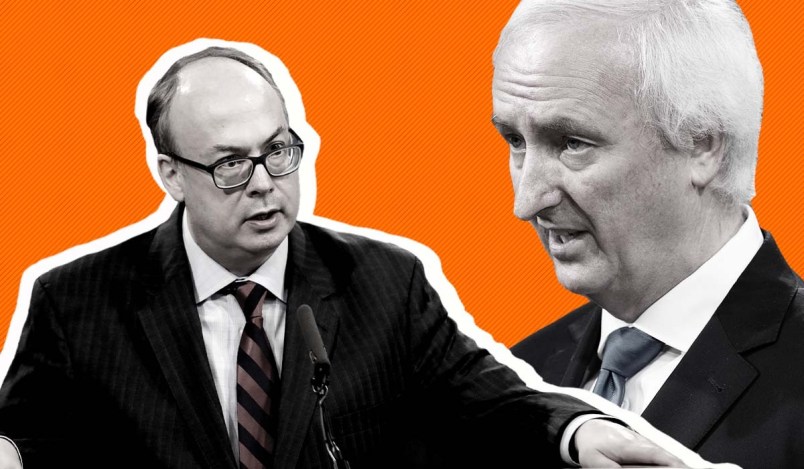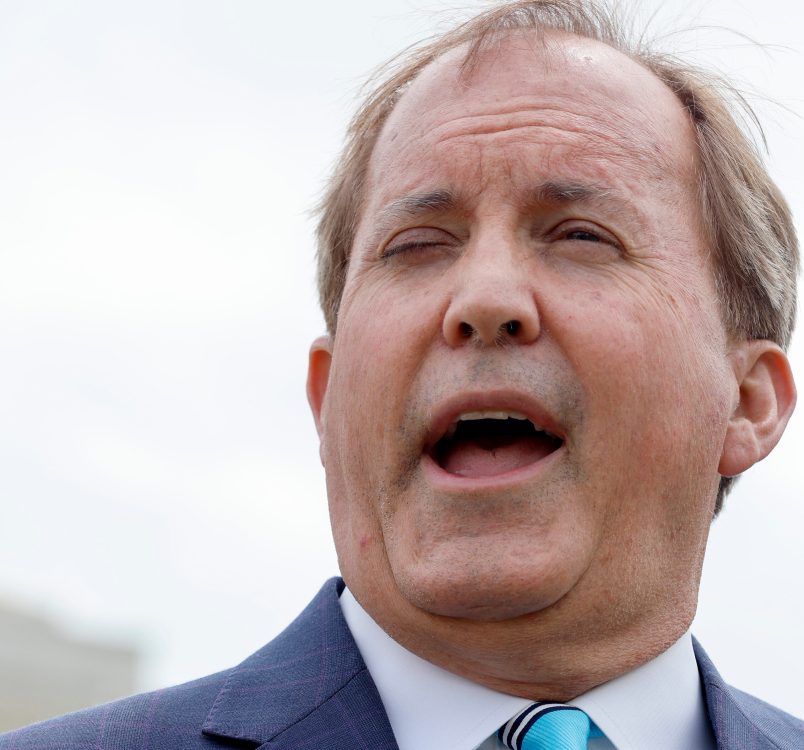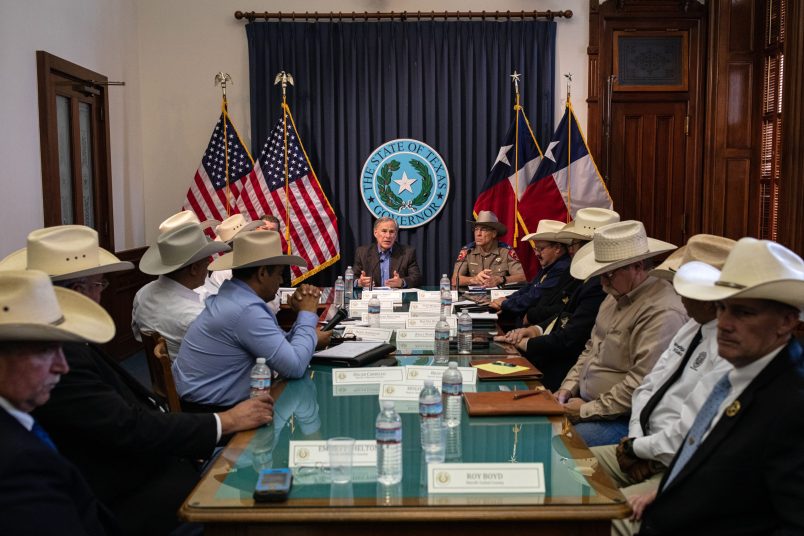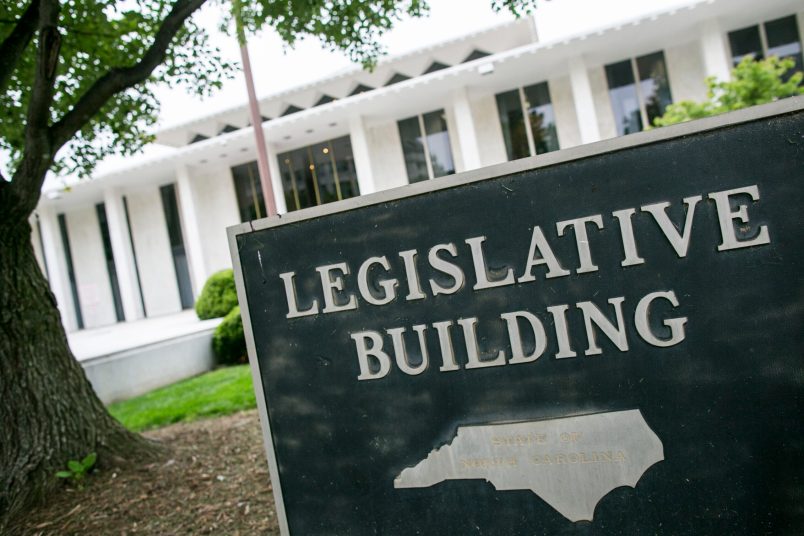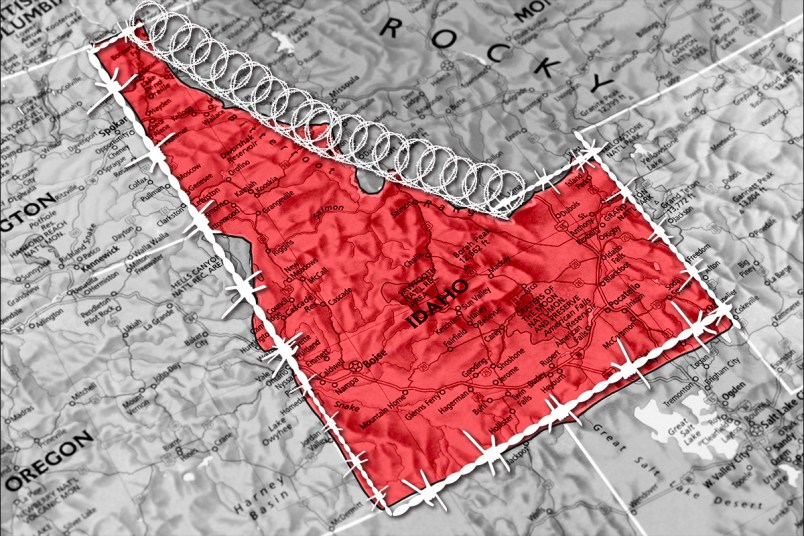Senate Judiciary Democrats released a preliminary report on Thursday into former President Trump’s efforts to enlist the DOJ to overturn the results of the 2020 election.
The report provides a stunning level of detail, describing how Trump deputized a senior DOJ appointee — Jeffrey Clark — in his campaign to use the department as a weapon against the election results.
It also details how former Deputy Attorney General Richard Donoghue and acting attorney general Jeffrey Rosen prevented the scheme from being realized, culminating in an eleventh-hour meeting in the Oval Office.
The report is preliminary, and the investigation is ongoing. Jeff Clark has yet to agree to a request to appear before the panel; the National Archives has yet to respond to a spring request for documents.
Here are five takeaways from the report.
Bill Barr set the stage for everything that happened.
None of Trump’s efforts to hijack the DOJ and orient it towards supporting the Big Lie could have taken place without Barr.
As the report notes, it was Barr who cleared the way for federal prosecutors to become involved in the first place by issuing a memo in November 2020 that lifted a longstanding ban which prevented prosecutors from taking overt investigative steps before election results were settled.
The report documents how that put U.S. Attorney for the Northern District of Georgia BJay Pak in a tough position: he was forced to investigate outlandish claims involving “vote-stuffing” and “suitcases” in December 2020. It wasn’t enough for Trump, because there was nothing to investigate, resulting in Pak’s forced resignation (first reported by TPM).
Investigators leave another Barr-related question open: he announced his resignation on Dec. 14, but only departed on Dec. 23. During the intervening period, Rosen and Donoghue began to face pressure from Trump which would later morph into the bid to install Clark as attorney general.
Was Barr unaware of this at the time?
Trump beckoned a coterie of maniacs to pressure DOJ leaders.
Trump opened the floodgates for a series of random people — some with official positions at various levels of government, others without — to begin pestering Rosen and Donoghue to investigate dubious claims of fraud in the election.
In one Dec. 27 instance, Trump asked Donoghue for his cell phone number, so he could have MAGA congressman Rep. Scott Perry (R-PA) call him and demand that the DOJ investigate “things going on in Pennsylvania.”
Another episode saw a man named Kurt B. Olsen, a private attorney who had formerly worked with Texas AG Ken Paxton on his Pennsylvania Supreme Court lawsuit, try to convince the DOJ to file a case with the Supreme Court seeking to block swing states from sending their Biden electors to Congress.
That was rebuffed, but not before Rosen made the crucial error of answering a call on his DOJ cell phone from a number he did not recognize.
“Rosen recalled being annoyed at himself for answering once he realized it was Olsen, who asked
whether Rosen had seen the Pennsylvania brief and stressed the importance of filing it,” the report reads. “Rosen asked Olsen what his relationship to Trump was and expressed skepticism that there would be standing to bring the proposed lawsuit, and recalled the phone call ending with a polite
brushoff.”
Jeff Clark’s coup attempt was unbelievably ham-fisted.
The specific acts that Clark took during the final days of December and first days of January come off as very aggressive. He was effectively attempting to issue orders to his boss, Jeffery Rosen, and would eventually demand his resignation and inform him that he would replace him.
Clark also threw his weight around in various other ways. He demanded that the “acting” on his title be removed, for example, even though he was never confirmed by the Senate to serve as assistant attorney general for the civil division.
When it came time for him to “fire” Rosen, Clark told his boss that he would appreciate it if he stuck around as his deputy attorney general.
“There was no universe I could imagine in which that would ever happen,” Rosen recalled replying.
The DOJ’s ranks would have been hollowed out before staff let Clark become AG.
Had Clark succeeded, the report suggests, the DOJ would have been enervated.
Clark would have been attorney general, but with no senior leadership. On a call before the momentous Jan. 3 meeting in the Oval Office, Rosen and Donoghue were purportedly told by senior DOJ leaders — that’s the heads of divisions in the department — that they, too, would resign if Rosen were to be canned.
At the meeting with Trump, his own White House counsel, Pat Cipollone, and deputy, Patrick Philbin, repeated this. Donoghue told Trump that U.S. Attorneys and other DOJ officials would likely follow suit in the event of a Clark attorney general-ship.
Trump is very impressionable.
This may not be breaking news, but one overall takeaway from this account and others is that people around Trump understood that he could be persuaded away from seemingly disastrous courses of action when necessary.
Look at the encounter with Clark: it deeply alarms Rosen and other senior officials.
But when Clark says that the plan is actually, finally in motion — Trump will fire Rosen and appoint Clark attorney general — Rosen immediately knows what to do: schedule a meeting with The Donald.
And in this case, Trump couldn’t look Rosen in the eye and say, “you’re fired.” Rather, in Rosen’s telling, Trump started the meeting off by remarking: “One thing we know is you, Rosen, aren’t going to do anything to overturn the election.”
From there, those around Trump and at the meeting were able to spend the next few hours pressuring the former President into keeping Rosen on and dropping the Clark plan. They browbeat him, saying that “U.S. Attorneys and other DOJ officials” might also resign en masse, as Eric Herschmann, a Trump legal adviser, criticized Clark’s “qualifications and abilities.”
It took time, but it worked: Trump dropped the plan, and Clark departed the DOJ in ignominy before the Biden administration arrived.


